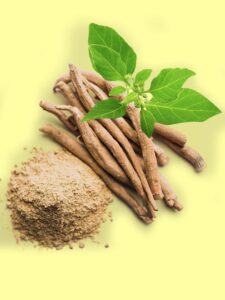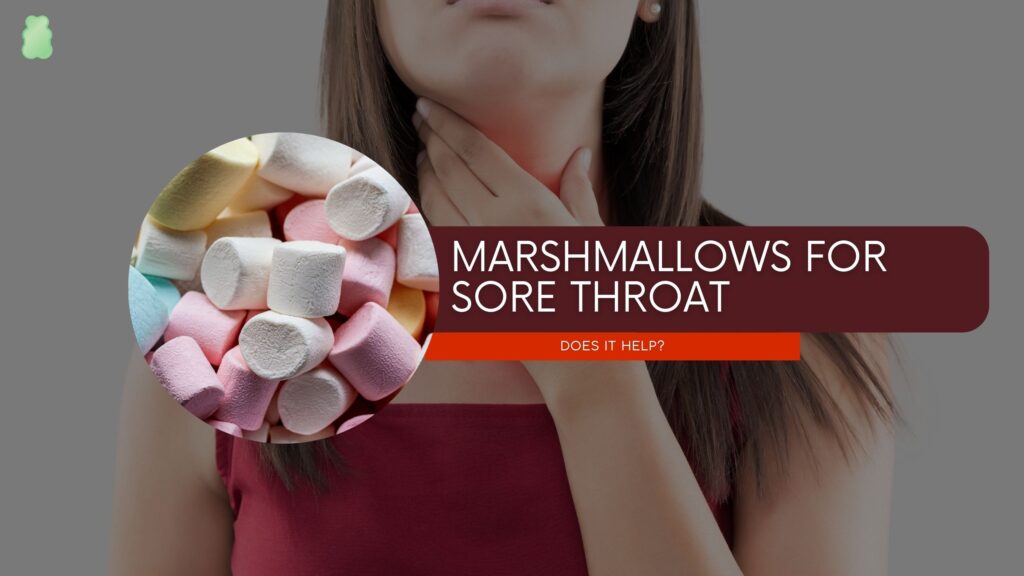Table of Contents
ToggleAre you looking for a natural way to reduce fibroids? Have you been struggling with the discomfort they bring that traditional treatments don’t seem to solve? If so, then Ashwagandha might be just the remedy you need.
I’ve personally had a long journey exploring various holistic remedies in my battle with fibroids and have seen many of them fail. But Ashwagandha surprised me! I witnessed first-hand how it has helped countless women all over the world safely reduce these lumps in the uterus. In this article I’ll share what I learned about this powerful herb from Ayurveda, its uses and benefits, dosage recommendations as well as precautions to take when using it. By the end of this article, you will know if Ashwagandha is right for your situation and how to use it properly for maximum benefit. Let’s get started!
What is Ashwagandha?

One of the key benefits of Ashwagandha is its ability to reduce inflammation in the body. Chronic inflammation has been linked to a variety of health problems, including heart disease, cancer, and autoimmune disorders. By taking Ashwagandha regularly, you can help combat this inflammation and potentially reduce your risk for these conditions. The herb contains compounds that inhibit the production of pro-inflammatory molecules in the body, which helps to lower overall levels of inflammation.
In addition to its anti-inflammatory properties, Ashwagandha is also known for its immune-boosting effects. It stimulates the production of white blood cells, which are responsible for fighting off infections and diseases. This can be particularly beneficial during cold and flu season when our immune systems may be weakened. By incorporating Ashwagandha into your daily routine, you can give your immune system an extra boost and increase your resistance to illnesses.
Furthermore, Ashwagandha is often used as a natural remedy for improving cognitive function. It has been found to enhance memory and improve focus and attention span. This makes it a popular choice among students or those who need mental clarity in their everyday lives.
To summarize, Ashwagandha is a versatile herb with numerous health benefits due to its adaptogenic properties. Its ability to reduce inflammation, boost immunity, and improve cognitive function make it an excellent addition to any wellness routine. Whether you’re looking for stress relief or want support for specific health concerns like reduced immunity or brain fog – ashwagandha might just be what you’re searching for!
We have covered an extensive guide on Ashwagandha which includes ashwagandha and weight loss. Further to better understand the herb and its various uses, we have covered topics like ashwagandha and menopause which you might be interested in.
Also, check out our recent posts: ashwagandha and viagra together
Understanding Fibroids
Fibroids, are those pesky little growths that set up camp in the uterus. They come in all shapes and sizes, causing all sorts of trouble for us ladies. Heavy bleeding? Check. Pelvic pain? Check. Frequent trips to the bathroom? Oh yes, they’ve got you covered there too.
Now, what exactly causes these little troublemakers to appear? Well, that’s a bit of a mystery. Scientists haven’t quite figured it out yet, but they suspect hormonal imbalances may have something to do with it. You see, our bodies are like delicate ecosystems with hormones playing a vital role in keeping everything balanced and functioning smoothly.
- Firstly
- Secondly
- Thirdly
When those hormones get out of whack, it’s like throwing a wrench into the gears of this intricate system we call our reproductive organs. And when things go awry in the uterus department, fibroids can make their grand entrance.
Sometimes these fibroids are so tiny that we don’t even notice them lurking inside us. But other times, oh boy do they make their presence known! Picture heavy periods that feel like Niagara Falls (minus the awe-inspiring beauty) or sharp pains shooting through your lower abdomen like fiery arrows from some medieval battle.
“But doctor,” you may say,
“What about my dreams of motherhood?” Ah yes my dear friend,
fertility is another concern when dealing with these pesky growths.
Fear not though, modern medicine has an arsenal (cue dramatic music)
of treatments at its disposal.
From medications to surgery,*
(*Remember folks,* Always consult your healthcare provider for the best option for you)
*
(*Seriously, don’t go all self-diagnosis and Dr. Google on this one)
- Medications – they can help regulate your periods and reduce symptoms.
- Surgery – from minimally invasive procedures to good old-fashioned hysterectomies, there are options depending on the severity of your fibroids.
No matter what path you choose, just know that you’re not alone in this battle against fibroids. With a little medical intervention and a whole lot of support, we can show these pesky growths who’s boss!
You Might Like: https://realgoodgummies.com/how-to-cycle-ashwagandha
The Link Between Ashwagandha and Fibroids
When it comes to dealing with fibroids, ashwagandha might just be the natural superhero we’ve all been waiting for. Recent research suggests that this mighty herb has some serious potential when it comes to reducing those pesky fibroids. How does it work, you ask? Well, let me break it down for you.
Ashwagandha is known for its anti-inflammatory properties, which means it’s pretty handy at tackling the inflammation that often accompanies fibroids. By targeting and reducing this inflammation within the body, ashwagandha can help ease those uncomfortable symptoms and potentially even shrink or prevent further growth of these pesky growths.
But wait, there’s more! Ashwagandha also has a knack for balancing hormones in our bodies. And we all know how hormone imbalances can contribute to the development and growth of fibroids. By regulating estrogen levels specifically, ashwagandha works its magic by keeping things in check.
In conclusion, if you’re looking for a natural way to combat fibroids and their troublesome symptoms, consider adding ashwagandha to your daily routine. Its anti-inflammatory properties combined with its ability to balance hormones make it a promising option worth exploring. So why not give this powerful herb a try and see if it can bring some much-needed relief?
You Might Like: https://realgoodgummies.com/ashwagandha-and-maca-root
Using Ashwagandha for Fibroid Reduction
Ashwagandha, a powerful herb with numerous health benefits, has gained attention for its potential to reduce fibroids. When it comes to using ashwagandha for fibroid reduction, there are two main methods: oral supplements and tea.
Taking ashwagandha orally in supplement form is a popular option. These supplements typically come in capsule or tablet form, making them easy to incorporate into your daily routine. The recommended dosage will vary based on individual factors such as age, weight, and overall health condition. It’s crucial to consult with a healthcare professional before adding any new herbal supplement to your regimen. They can provide personalized guidance and ensure safe usage.
Another way to harness the power of ashwagandha for fibroid reduction is by brewing it into a soothing tea. This method allows you to savor the calming properties of this herb while potentially benefiting from its fibroid-reducing effects. To make ashwagandha tea, simply steep 1-2 teaspoons of dried ashwagandha root or powder in hot water for about 10 minutes. You can add honey or lemon juice for extra flavor if desired.
Remember that everyone’s body is unique, so what works for one person may not work the same way for another when it comes to natural remedies like ashwagandha. Consulting with a healthcare professional is vital before incorporating any new herbal supplement into your routine – they can guide you toward an appropriate dosage and monitor your progress along the way.
In conclusion, using ashwagandha either through oral supplements or brewed as tea may hold promise in reducing fibroids naturally. However, always prioritize discussing these options with a healthcare professional who can provide expert advice tailored specifically to your needs and circumstances
You Might Like: https://realgoodgummies.com/ashwagandha-withdrawal-things-you-must-know
Precautions When Using Ashwagandha
Ashwagandha, a versatile herb known for its adaptogenic properties, has gained popularity in the wellness world. While it is generally considered safe for most individuals when taken within recommended doses, there are certain precautions to be mindful of.
If you are pregnant or breastfeeding, it’s crucial to exercise caution with ashwagandha. Although research on its effects during pregnancy is limited, it’s better to err on the side of caution and avoid taking this herb during such delicate times. The same applies if you are nursing your baby because the potential impact on infants is not yet fully understood.
Another consideration when using ashwagandha is its potential interaction with certain medications. It’s important to consult your healthcare provider before incorporating this herb into your routine if you are currently taking any prescription drugs. Some medications that may interact with ashwagandha include immunosuppressants, sedatives, thyroid hormone replacement therapy drugs, and blood thinners.
Always remember that everyone’s body reacts differently to substances like herbs and supplements. What might work well for one person may not have the same effect on another individual. Therefore, it’s vital to prioritize open communication with your healthcare provider who can give personalized advice based on your specific health circumstances.
Taking these precautions into account ensures that you can enjoy the potential benefits of ashwagandha while minimizing any risks associated with its use. Remember: safety first!
You Might Like: https://realgoodgummies.com/ashwagandha-gummies-for-sex
Other Holistic Remedies for Fibroids
Acupuncture, a practice originating from ancient Chinese medicine, has gained popularity in recent years as a holistic approach to treating various health conditions. When it comes to fibroids, acupuncture can be used to stimulate specific points in the body, promoting blood flow and reducing pain. This alternative therapy is believed to balance the energy flow within the body and alleviate symptoms associated with fibroids.
Another natural remedy for fibroids is chaste tree berries. Derived from the fruit of the chaste tree, this herbal supplement is thought to regulate hormonal imbalances that contribute to fibroid growth. It works by inhibiting the release of certain hormones involved in estrogen production and may help reduce both the size and symptoms of fibroids over time.
Turmeric, known for its vibrant yellow color and distinctive flavor in cooking, also holds potential therapeutic benefits for those dealing with fibroids. Curcumin, an active compound found in turmeric, possesses anti-inflammatory properties that can help minimize inflammation caused by these benign tumors. Incorporating turmeric into your diet or taking curcumin supplements may aid in managing pain and reducing the growth of fibroids.
In addition to these specific remedies, making lifestyle changes such as stress reduction techniques like meditation or yoga can positively impact overall well-being while potentially easing symptoms associated with fibroids. Regular exercise not only helps maintain a healthy weight but also promotes better blood circulation throughout your body.
Lastly, dietary modifications play a crucial role in managing fibroid symptoms. A high-fiber diet rich in fruits and vegetables can aid digestion and prevent constipation – common issues faced by many women with uterine fibroids.
Remember that each person’s experience with holistic remedies may differ; therefore finding what works best for you might involve trial-and-error or consultation with a healthcare professional experienced in alternative therapies.
Conclusion
Ashwagandha, also known as Withania somnifera, is an ancient medicinal herb that has been used for centuries in Ayurvedic medicine. It is believed to have a wide range of health benefits and is often referred to as an adaptogen, meaning it helps the body cope with stress.
One area where ashwagandha has shown promise is in its potential ability to reduce fibroids. Fibroids are non-cancerous growths that develop in the uterus and can cause symptoms such as heavy menstrual bleeding, pelvic pain, and infertility. While more research needs to be done on ashwagandha’s specific effects on fibroids, preliminary studies suggest that it may help inhibit the growth of these abnormal uterine tissues.
Anecdotal evidence also supports this claim, with many women reporting a reduction in their fibroid symptoms after incorporating ashwagandha into their treatment regimen. However, it’s important to note that every individual is different and what works for one person may not work for another.
If you’re considering using ashwagandha for its potential fibroid-reducing properties or any other health concerns, it’s crucial to consult with a healthcare professional first. They can provide personalized advice based on your medical history and current condition.
FAQ
1. What is Ashwagandha and how does it help in reducing fibroids?
– Ashwagandha is a medicinal herb known for its healing properties. It helps reduce fibroids by balancing hormones, reducing inflammation, and promoting overall reproductive health.
2. Can Ashwagandha be used as a natural alternative to treat fibroids?
– Yes, Ashwagandha can be considered a natural alternative for treating fibroids due to its ability to regulate hormone levels and shrink the size of existing fibroids.
3. How should I consume Ashwagandha for optimal results in reducing fibroids?
– The recommended dosage of Ashwagandha varies depending on individual needs. It is commonly consumed in capsule or powder form, usually taken daily with meals or as advised by a healthcare professional.
4. Are there any potential side effects of using Ashwagandha for fibroid reduction?
– Generally, Ashwagandha is safe when consumed within the recommended dosage range. However, some individuals may experience mild side effects such as stomach upset or drowsiness. It’s important to consult with your healthcare provider before starting any new supplements.
5. How long does it usually take to see results from using Ashwagandha for reducing fibroids?
– The time frame for seeing results can vary among individuals depending on factors like the severity of the condition and adherence to proper dosages. While some people may notice improvements within weeks, others may require several months of consistent use before experiencing noticeable changes in their condition.
Dr. Susan Francis is a passionate medical professional with over 4.5 years of experience in the field. She received her medical degree from the University of Michigan and completed her residency at the Mayo Clinic.
In addition to her clinical work, Dr. Francis has a strong interest in medical writing and editing. She has edited numerous articles for medical journals and is a regular contributor to several healthcare publications.
Dr. Francis is committed to promoting accurate and accessible medical information to the public. In her free time, she enjoys staying up to date on the latest medical research and volunteering at local healthcare clinics.
- October 3, 2023
- October 3, 2023









